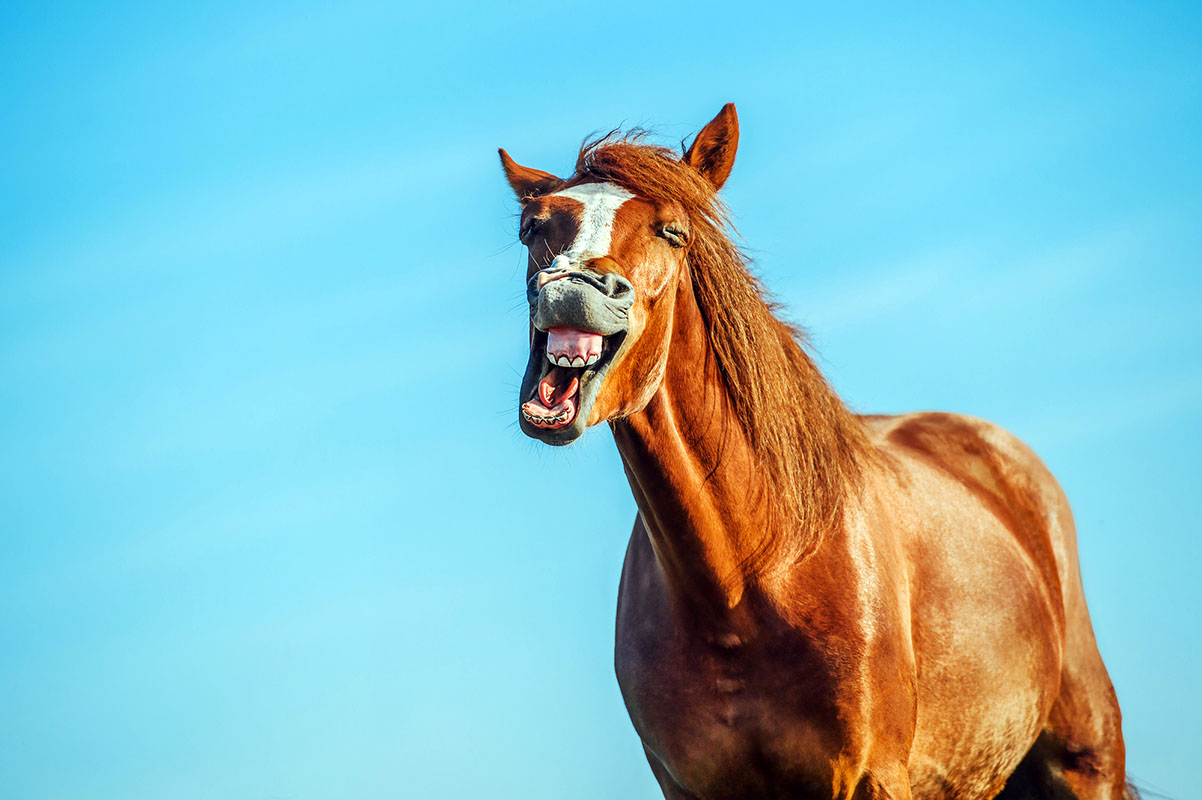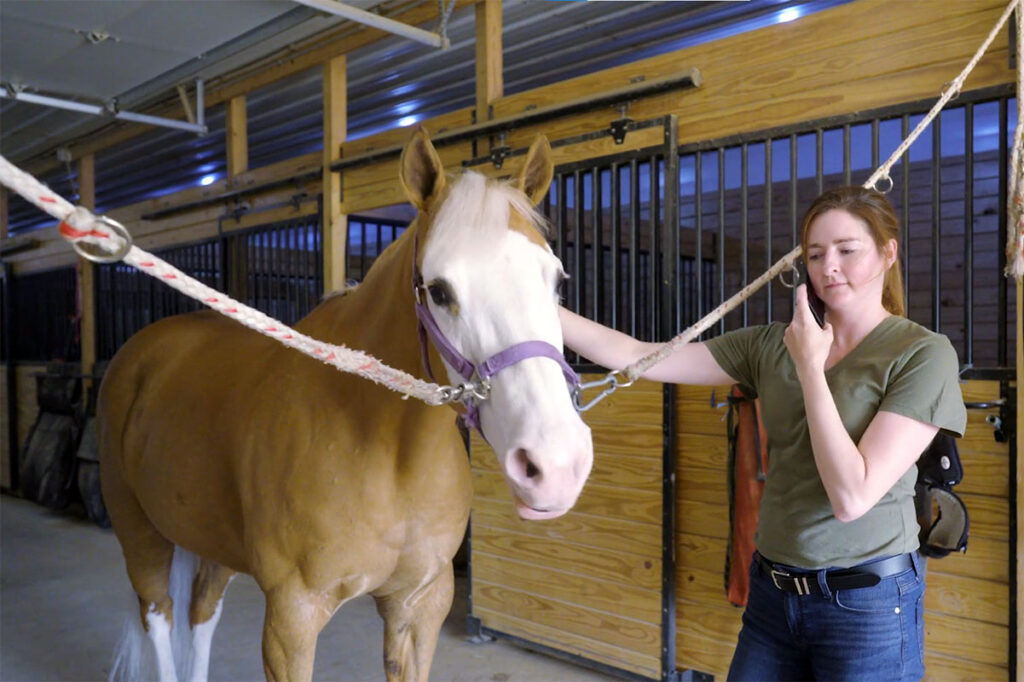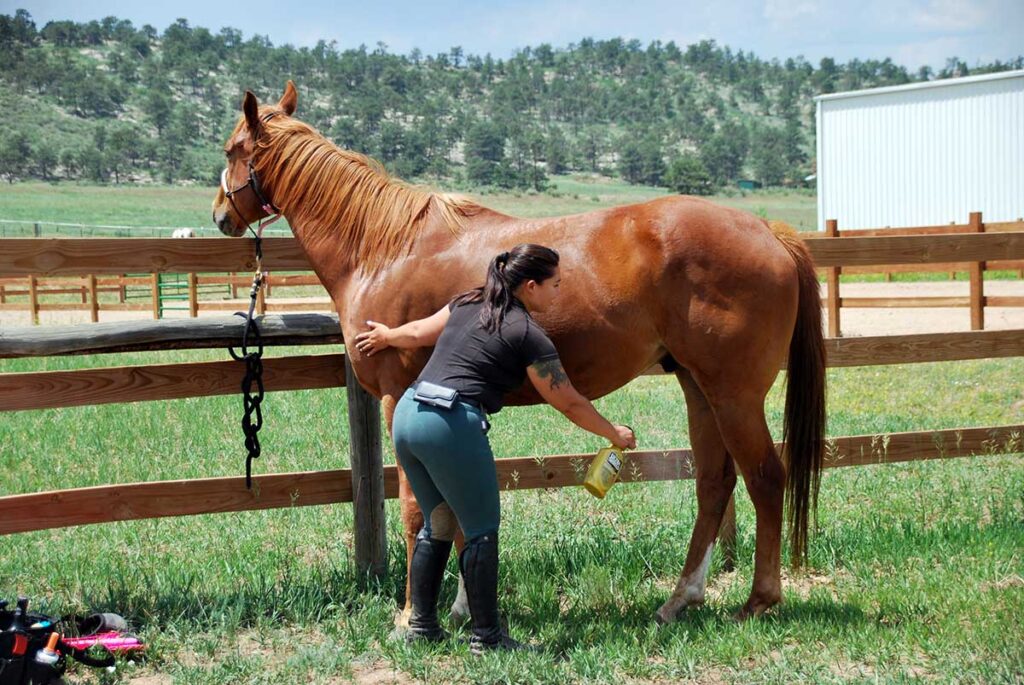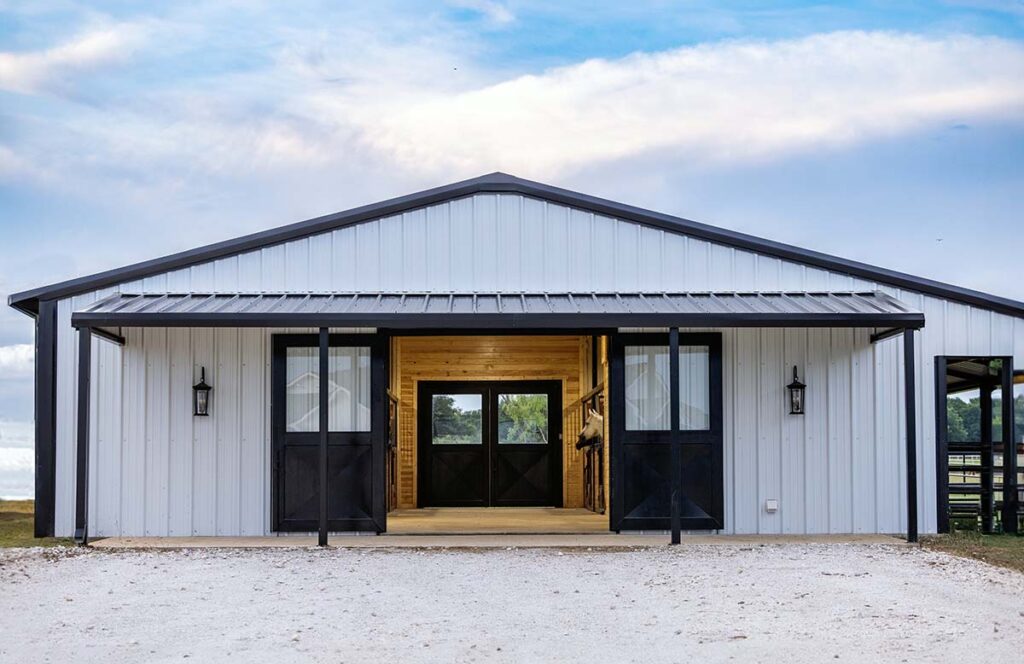Horses’ mouths are cavernous. Yet, it’s challenging to see what lies within those powerful jaws without specialized care and equipment. So we’re here to answer all your questions and curiosities about horse teeth—from how many they have to how they grow.
An Introduction to Horse Teeth
Horses, like humans, have deciduous (baby) teeth and permanent teeth. Foals and young horses have 24 milk teeth, also called caps, that they “shed” or lose as they age. Typically, adult horses have 36 to 44 teeth. The number of teeth can vary because of the horse’s age and breed, with geldings and stallions sometimes having more teeth than mares.
The horse’s mouth is complex, but knowing the three categories of horse teeth can help you talk with your veterinarian about what’s going on in your horse’s mouth.
The three types of horse teeth include:
- Incisors: These teeth are in the front of your horse’s mouth. He uses them to grab and bite forage.
- Canines: Typically, only male horses have canine teeth, which are located between the incisor and cheek teeth on both the upper and lower jaws.
- Cheek teeth: These teeth include premolars and molars and grind your horse’s food in preparation for swallowing.
You might also hear your veterinarian or other horse owners talk about a horse’s wolf teeth. These teeth don’t have any function, but most horses have them. They erupt when a horse is between five and 12 months old. Usually, veterinarians remove these teeth because they can interfere with the bit.
3 Fun Facts About Horse Teeth

You might be surprised to learn that equine teeth take up more space in a horse’s head than their brains! Their teeth can reveal important information about their age and health. Here are three fun facts to know about horses’ teeth:
- Teeth can estimate age. If you don’t know your horse’s birthdate, a veterinarian can estimate his age by tooth wear.
- Horse’s teeth are growing constantly. Humans’ teeth stop growing after a certain age, but horses’ teeth erupt throughout their lives at 3 to 5 millimeters each year.
- Horses need regular dental checkups. Just like us, horses need regular dental care to detect potential problems. During a dental exam a veterinarian or an equine dentist looks for sharp points on the tooth or uneven wear patterns and uses a tool to “float” a horse’s teeth to remove any sharp points and correct unevenness.
Signs Your Horse Might Have Dental Problems
Horses are stoic animals and can disguise tooth pain. In some cases, horses with dental problems show few to no signs of pain and maintain good body condition. By knowing what clues to look for, you can alert your veterinarian to potential problems with your horse’s teeth before they become a bigger problem.
Let your veterinarian know if you see any of these signs develop:
- Changes in daily eating habits, such as eating hay before grain, dunking hay in water, or larger-than-normal feed particles in the manure.
- Weight loss and poor body condition.
- Behavior changes such as tossing, tilting of the head, difficulty bridling, grabbing the bit/lack of control, and rearing, either in hand or under saddle.
- Change in the smell of your horse’s breath.
- Discharge from the horse’s mouth and nostrils.
- Quidding or balling of hay.
- Change in gum color.
- Sores on the lips, gums, palate, or soft tissue.
Provide Regular Dental Care
A horse’s teeth play a critical role in maintaining good overall health. Dental issues can lead to weight loss, pain, and behavioral problems. Talk with your veterinarian or an equine dentist about how often your horse needs a dental exam. Oral examinations are usually done once a year as part of a wellness checkup, but some horses require more frequent exams if they develop tooth problems.
Related Reading:
- Caring for Equine Teeth: Why Your Horse Needs Dental Exams
- How To Examine Your Horse’s Mouth
- Year-Round Horse Health Care: What To Do and When
Katie Navarra Bradley is a writer and author who covers horses, agriculture, and sustainability. She also partners with horses to deliver equine-assisted business and leadership coaching.
Are you enjoying this content? Sign up for My New Horse’s FREE newsletter to get the latest horse owner info and fun facts delivered straight to your inbox!








